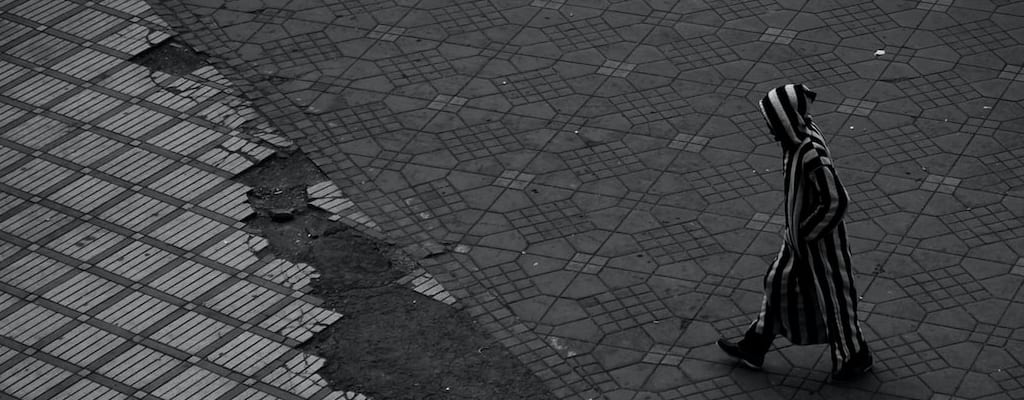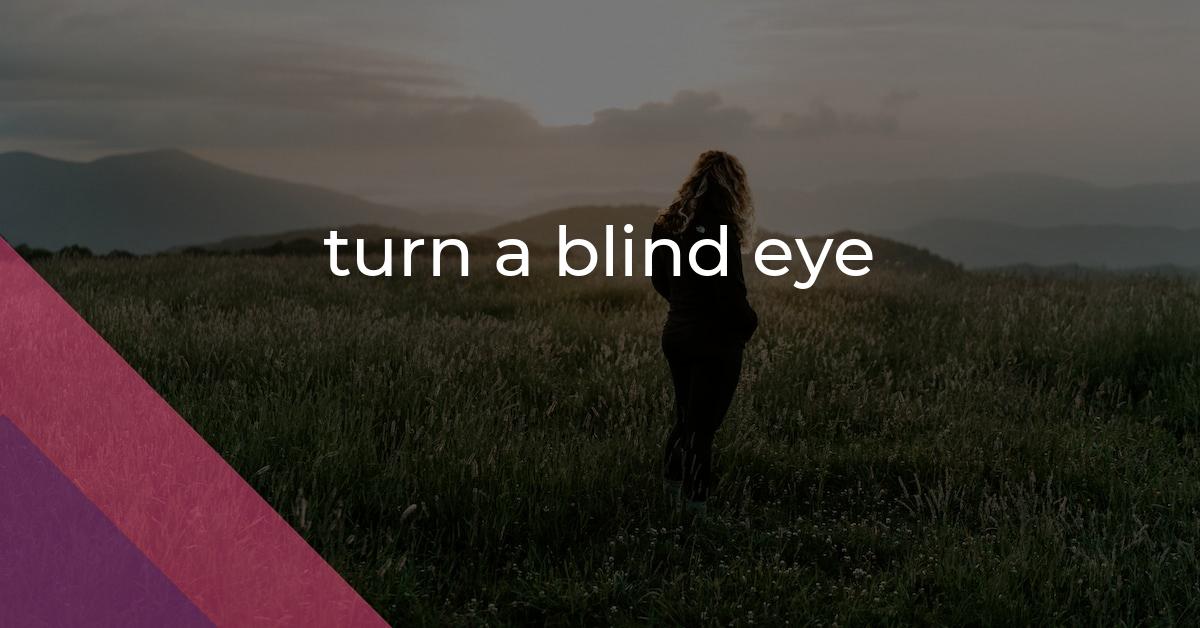turn a blind eye: Idiom Meaning and Origin
What does ‘turn a blind eye’ mean?
The idiom "turn a blind eye" means to deliberately ignore or pretend not to notice something, especially something that is wrong or illegal.

Idiom Explorer
The idiom "with an eye towards" means to consider or have a focus on something, usually with a specific goal or purpose in mind.
The idiom "up to no good" means engaging in suspicious or dishonest activities.
The idiom "under the rug" means to hide or ignore something, usually a problem or issue, rather than dealing with it directly or openly.
The idiom "under the radar" means to go unnoticed or undetected, especially in a way that avoids attention, scrutiny, or surveillance.
The idiom "under the carpet" means to hide or conceal something, usually a problem or an issue, in order to avoid dealing with it or addressing it properly.
The idiom "under someone's nose" means that something is happening or someone is doing something right in front of someone else and they are completely unaware of it.
The idiom "under one's very eyes" means that something is happening or existing in plain sight or in close proximity to someone, without them realizing or noticing it.
The idiom "under one's hat" means to keep something a secret or to refrain from sharing information with others.
The idiom "turn-off" refers to something that causes a loss of interest or enthusiasm in a person or makes them feel repulsed or disgusted.
The idiom "turn of events" refers to an unexpected change or shift in a situation or sequence of events.
Origins & Interpretation
One commonly used idiom in American English is "turn a blind eye." This means to ignore or intentionally overlook something, especially when it is morally wrong. It signifies a deliberate choice to not acknowledge or take action against an issue or wrongdoing.
The phrase "turn a blind eye" can be related to two similar idioms: "look the other way" and "close one eye." These idioms express the same idea of deliberately ignoring something, whether it be an ethical dilemma or an unlawful action.
The origin of the idiom "turn a blind eye" can be traced back to a story about Admiral Horatio Nelson, a British naval officer during the late 18th and early 19th centuries. The story goes that during the Battle of Copenhagen in 1801, Nelson was ordered to withdraw his fleet from engaging the Danish-Norwegian forces. However, he allegedly turned his telescope to his own blind eye and disregarded the order, choosing to continue the fight. This act of willful ignorance ultimately led to a British victory, and the phrase "turn a blind eye" came to be associated with intentionally ignoring something.
The figurative meaning of "turn a blind eye" expanded beyond the naval story and became widely used in English literature and everyday usage. Notable writers such as Charles Dickens and Sir Walter Scott included the phrase in their literary works, further popularizing its usage.
Today, "turn a blind eye" is commonly used in both formal and informal contexts, often highlighting the moral or ethical implications of deliberately ignoring injustice, corruption, or wrongdoing. Whether it's individuals, organizations, or even governments, the idiom signifies a choice to ignore or tolerate harmful actions for personal gain or convenience.
By choosing to "turn a blind eye," individuals or entities intentionally avoid confronting uncomfortable truths or taking responsibility for their actions. This idiom reminds us of the complexity of human behavior and decision-making.
"Look the other way" and "close one eye" are two idioms closely related to "turn a blind eye." These phrases share the same concept of deliberately not acknowledging or addressing a situation. They can be used interchangeably in various contexts to emphasize the act of intentionally ignoring something.
When individuals "look the other way" or "close one eye," they are actively choosing to disregard or overlook a matter. This can be due to personal motives, fear of consequences, or a desire to avoid getting involved. The result, however, is the same as "turning a blind eye" – a deliberate act of ignoring or tolerating something that should be addressed.
While "turn a blind eye" is deeply ingrained in the English language and widely understood, these related idioms provide additional flexibility and variety in expressing the act of deliberately ignoring or overlooking something.
The usage of idioms like "turn a blind eye," "look the other way," and "close one eye" reflects the ethical dilemmas that individuals and societies face. They draw attention to the consequences that can arise from intentionally ignoring or overlooking wrongdoing.
Whether used in personal conversations, professional settings, or political debates, these idioms capture the complex dynamics of human decision-making and moral responsibility. They remind us of the choices we make and the potential impact of failing to confront injustice or address unethical actions.
Example usage
Examples of how the idiom *turn a blind eye* can be used in a sentence:
1. The teacher decided to turn a blind eye when she saw the students passing notes in class.
2. The police officer turned a blind eye to the minor traffic violation because she had more important matters to attend to.
3. The manager turned a blind eye to his employee's tardiness as he valued his productivity and contributions to the company.
More "Neglect" idioms



